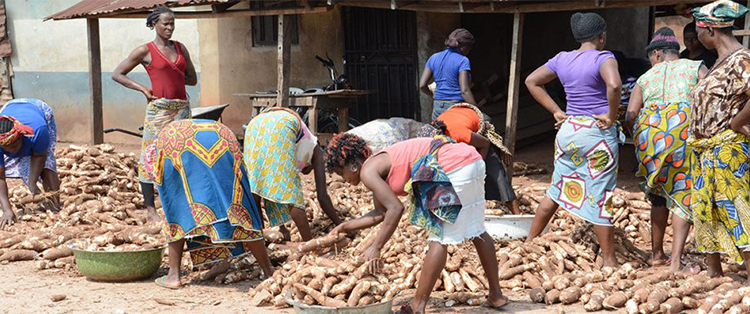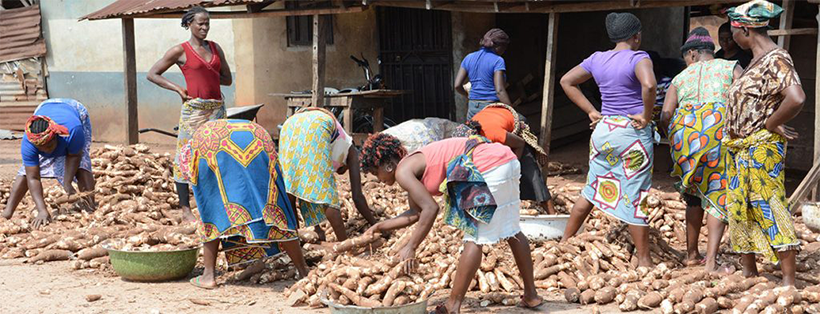
Improving the entrepreneurial orientation of young female agribusiness owners in Benin
With agriculture accounting for about 20% of GDP in the Republic of Benin and employing over 50% of the nation’s workforce (aged 15‒64) according to statistics, various initiatives have been implemented to promote youth in agribusiness in the country. However, there seems to be an inability to develop businesses for sustainable income among the youth, especially women, who venture into the agricultural sector.
In sub-Saharan Africa, studies show that most women engaged in agribusiness mainly work in processing, a sector that employs nearly 88% of women in Benin, and the majority of them are under 35 years old. According to a study carried out by Smith Dossou, an IITA–CARE awardee, women entrepreneurs are more likely to underperform or make less revenue and profits in their businesses compared to men entrepreneurs.
The study aimed to understand the economic success, the role of entrepreneurial orientation, and the influence of social and business environments among young women agribusiness owners in Benin. Carried out under the IFAD-sponsored CARE project, it reveals that embracing strategies that will enhance innovative, pro-active, and risk-taking attitudes can ensure the success of young women agribusiness owners in the country.
Agribusiness, like most economic activities, has been identified as critical to development in African countries. The development of agro-based industries and initiatives focusing on youth will create jobs to address unemployment and poverty.

The Government of Benin is implementing various initiatives to promote youth and women entrepreneurship in agribusiness.
“In Benin, various initiatives have been implemented to promote youth entrepreneurship in agribusiness,” states Dossou. “Yet, young people, especially women who venture into agribusiness often find themselves, in the short or medium term, unable to develop their businesses for sustainable income,” he adds.
According to Dossou, there seems to be a relatively low business performance index with young women agribusiness owners. However, the study records a positive effect of Entrepreneurial Orientation (EO) on the innovativeness, proactiveness, and risk-taking characteristics among them.
Policymakers can develop subsector-specific policies to address the underperformance of young women agribusiness owners. Doing this will build enterprise production and help women agribusiness owners increase profit in Benin. Also, capacity-building initiatives implemented in partnership with NGOs and professional training institutions can help potential young women agribusiness owners to acquire and grow the appropriate EO.
